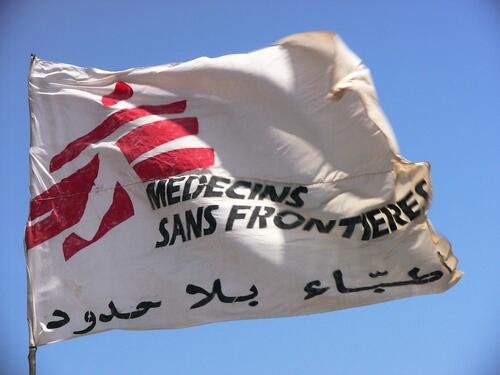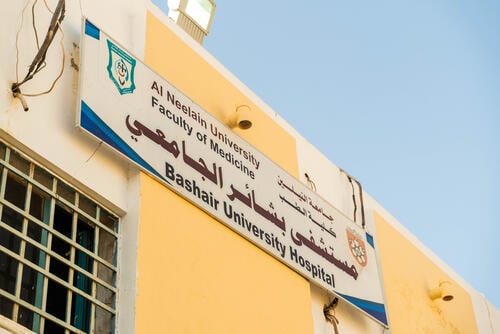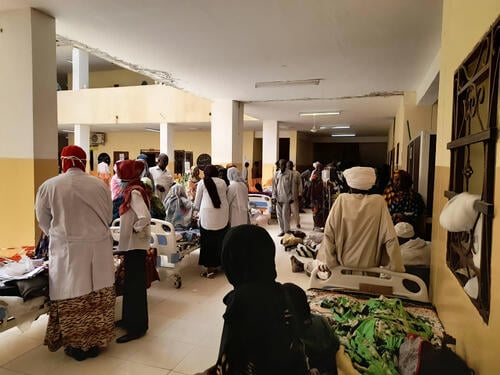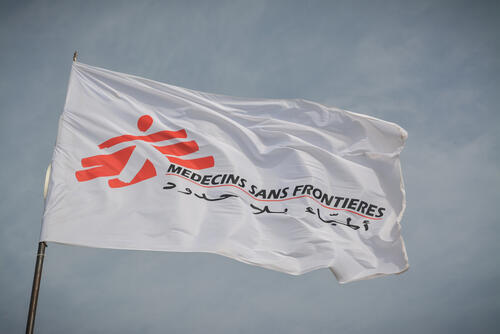- Following the outbreak of fighting between the army and a paramilitary group in Sudan 10 days ago, MSF teams are continuing to treat people where we’re able to continue safely working.
- We are also assessing the needs in areas to where people have fled and are preparing to scale up our response.
- However, we urge the fighting parties to respect the safety of medical personnel and civilians seeking healthcare.
In the wake of fighting between armed groups in Sudan which started over a week ago, ongoing violence continues in many parts of the country. Médecins Sans Frontières (MSF) teams on the ground report that hospitals are overwhelmed, and thousands of people are fleeing to safer areas. We are already seeing immense humanitarian and medical needs. But we are continuing to treat people in some areas and are ready to scale up our response.
“During a lull in the fighting, MSF was able to make a donation of medical supplies to a health facility in Khartoum on Sunday 23 April,” says Dr Ghazali Babiker, MSF Country Director for Sudan. “We are in contact with hospitals and Sudanese medical authorities and associations to try to supply additional hospitals and facilities within the capital, however, the fighting is continuing to make this almost impossible.”
In El-Fasher, the capital of North Darfur state, in southwestern Sudan, a large number of wounded people have arrived at the hospital MSF supports. Our teams are working round the clock to treat the injured; 404 people have so far made it to the hospital for treatment, which is now the only health facility that is operational in the city.
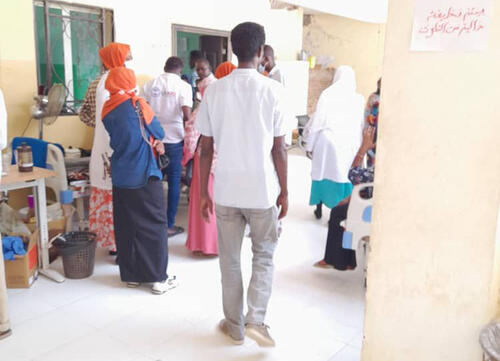
Thousands of people have fled from Khartoum to Wad Madani, a town about 200 kilometres southwest of the Sudanese capital. MSF teams, including staff from Khartoum and from our project in Damazin, are currently assessing how we can best begin to respond to the needs there.
MSF-supported facilities are also continuing to treat patients in Damazin, Blue Nile state; Omdurman, Khartoum state; in Kreinik and El-Geneina, West Darfur; in Rokero, Central Darfur; and Um Rakuba in Gedaref state in east Sudan. We remain committed to providing much needed healthcare to people in Sudan, especially during these challenging moments. But to do so, we need to be able to ensure safety and security for our staff and patients.
“Experienced MSF emergency teams stand ready to enter Sudan as soon as they are able to support the scale-up of our activities,” says Kate Nolan, MSF Deputy Director of Operations. “Other teams are currently preparing and identifying the best ways to send medical and humanitarian supplies to the country.”
All those participating in the violence... must allow safe passage of our teams, ambulances and civilians seeking healthcare, and to facilitate movement of those who are delivering humanitarian assistance.Dr Abubakr Bashir Bakri, MSF operations manager for Sudan
After more than a week sheltering from heavy fighting in Sudan, some of our teams have relocated to safer locations, while there are plans for others to leave the country. Some staff have also relocated with their families to safer areas, often joining other family. We continue to keep in close contact with all team members, as far as possible. The safety of our staff is a top priority, and we appreciate the support we have received to safely relocate our teams.
“We reiterate our call for all those participating in the violence to respect their obligations under international humanitarian law to ensure the safety of medical personnel and health facilities,” says Dr Abubakr Bashir Bakri, MSF operations manager for Sudan. “They must also allow safe passage of our teams, ambulances and civilians seeking healthcare, and to facilitate movement of those who are delivering humanitarian assistance.”



